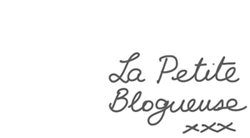For example, they translate "Je m'appelle ..." as "My name is..." when the literal translation is "I call myself..."
Some seemingly simple words have interesting literal translations. Some I read about, some I figured out on my own.
Bonjour
= always gets translated as "hello" but it literally means "good day". Bon(ne) (good) and jour (day).
Au revoir
= "goodbye" composed of "a le revoir" --> "au revoir" which literally means "at the re-seeing" ie "till I see you again" or "till we meet again". There are so many French words, which, when translated into English are totally different but when I translate them into Chinese, are the same. Eg the word for goodbye is "zai jian" which literally means "again meet" ie "till we meet again".
S'il vous plaît
= "please". From "si il vous plaît" and literally means "if it pleases you." Informal form is "s'il te plaît."
Aujourd'hui
= "today" but is actually "a le jour de hui" -->; "au jour de hui" literally meaning "at the day of today" (because "hui" sounds exactly like "oui" which means "yes", people were getting confused)
Bienvenue
= "welcome" and is made up of the words bien (well) and venu(e) (past tense of come)
Tout le monde
= "everybody" or "everyone" but literally means "all the world"
Personne
= "nobody", "noone"... made up of person (person) and ne (not (negation)) ie "not a person."
Peut-être
= "perhaps", "maybe", "possibly" etc... made up of the words peut (can) and être (be).
Croquembouche
= traditional French-style wedding cake made of bite-sized spherical custard-filled profiteroles coated and held in place with caramelized sugar. From "croque en bouche" meaning "crunch in mouth."
When I come across more I'll add them to this list!





















0 comments:
Enregistrer un commentaire